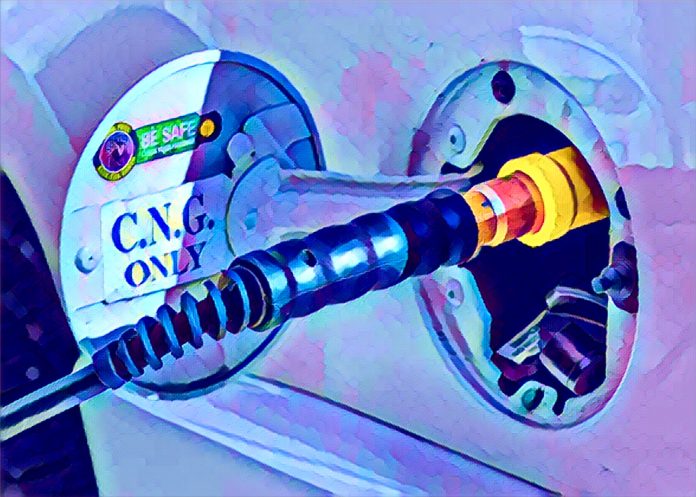The Nigerian Federal Government is considering a new mandate that would require all new and major petrol stations to install compressed natural gas (CNG) pumps. This move aims to diversify energy sources and promote environmental sustainability. The initiative is led by the Nigerian Midstream Downstream Petroleum Regulatory Authority (NMDPRA) and aligns with the government’s autogas policy, which seeks to reduce reliance on petrol and diesel. This is important because petrol and diesel prices are subject to volatility due to exchange rate fluctuations.
During a recent announcement in Abuja, Ahmed Farouk, Chief Executive of NMDPRA, emphasized the government’s commitment to integrating CNG infrastructure into the nation’s fuel supply chain. The government has determined CNG’s price at $1.57 per million British thermal units (MMBTU) to support the upcoming rollout of autogas vehicles by the current administration.
The move to CNG is considered essential for easing the periodic fuel scarcity that plagues Nigeria, exacerbated recently by logistical issues in transporting petroleum products from coastal receiving facilities to inland distribution points. Thankfully, these challenges have been largely resolved, restoring normalcy to fuel supplies in most cities.
The switch to CNG not only promises economic relief from the high costs of petroleum motor spirit (PMS) but also offers substantial environmental benefits. CNG burns cleaner than petroleum fuels, emitting lower levels of harmful gases such as carbon dioxide and nitrogen oxides, which contribute to air pollution and climate change.
The abundant gas reserves in Nigeria, estimated at over 200 trillion cubic feet, provide a robust foundation for this transition. Farouk emphasized the necessity of harnessing these reserves effectively to ensure CNG is both affordable for consumers and capable of sustaining the country’s energy needs.
To facilitate this shift, Farouk called for a collective industry effort to address supply-side challenges and leverage local production capacities. The industry’s transformation into a CNG-driven economy, particularly for the transport sector, requires the product to be competitively priced and widely available.
Furthermore, the NMDPRA is exploring innovative approaches to reduce the energy sector’s carbon footprint. This includes potential initiatives to power depots and retail outlets with solar energy, despite the high initial costs associated with such a transition. This phased approach aims to diminish the sector’s reliance on diesel-powered generators, aligning with global trends towards cleaner energy sources.
The push for CNG integration faces several challenges, including the need for substantial investment in infrastructure and the adaptation of vehicles to run on CNG. Moreover, the actual consumption figures for fuel in Nigeria remain unclear, prompting plans to install trackers on all tankers to monitor the flow of petroleum products to retail stations more accurately.
Despite the potential for increased local refining capacity with the operationalization of the Dangote refinery and others expected to come online, the NMDPRA acknowledges the importance of allowing market forces to dictate the importation and pricing of diesel and other fuels. The agency’s role, as outlined by Farouk, is not to control prices but to ensure a steady supply and prevent any gaps that could affect national energy security.
The federal government’s directive has seen alignment from industry stakeholders, including Abdulkabir Aliu, Managing Director of Matrix Services Limited, who expressed support for the government’s long-term energy strategy. Aliu called for public patience as the new policies gradually come into effect, highlighting the operational success of the new refinery and the anticipation of further expansions in the refining sector.
Nigeria’s concerted push towards a CNG-centric energy model represents a pivotal shift in its approach to energy security, economic stability, and environmental stewardship. By mandating the installation of CNG pumps at major fuel stations, the government not only aims to tap into its vast natural gas reserves more effectively but also sets the stage for a cleaner, more sustainable energy future. This strategic move could serve as a model for other oil-dependent nations looking to diversify their energy sources and reduce environmental impact.



